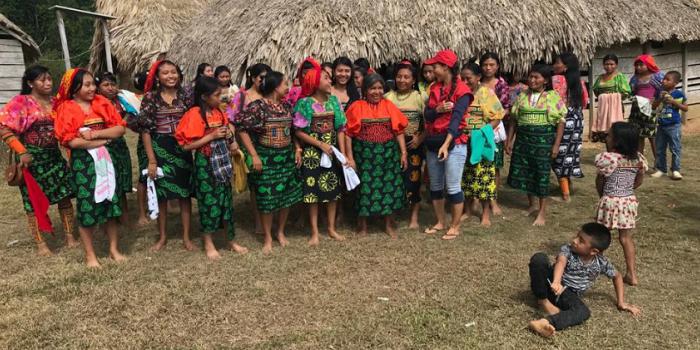
Gunadule people recover ancestral productive practices, as a measure of collective reparation
This project has been possible by planting corn and rice in a shelter located in the jurisdiction of Turbo (Antioquia).

Thanks to collective reparation, what was once arid land is now 20 productive hectares cultivated with rice and corn, which will provide more than 127 families from the Caimán Alto reservation of Gunadule people, subject to repair by the Victims Unit, located in the jurisdiction of Turbo (Antioquia).
This community directed the recourse to their collective reparation in the execution of this agricultural project, which is part of the 25 restitution measures, and restoration of rights of the collective reparation process that has been accompanying the Unit and which has allowed through this project, guarantee the food supply of these indigenous communities and recover their ancestral productive practices.
The subject of collective reparation is made up of three shelters scattered in different geographical points, among them, the Arquia resguardo, in the municipality of Unguía, Chocó; Caimán Bajo reservation, located in the municipality of Necoclí (Antioquia), and Caimán Alto reservation, in Turbo.
The agricultural project, which benefits about 559 inhabitants of this reservation, with an investment of around $ 93 million, has also allowed the proximity and integration of the youngest in the community, contributing labor and participating in the restoration of their traditional capacities and productive forms.
This is what Jeanis Whistman Cuéllar Olier, member of said community says: “With the recourse of the collective reparation of the Victims Unit, we are working on the sowing of rice and corn crops, this makes us revitalize our ancestral practice as before our grandparents, our elders had been planting and the idea is that we young people learn from that; We know that we are in a time of pandemic and we cannot go out to the town to buy”, says the young Cuellar.
For her part, Elizabeth Granada Ríos, director of the Unit in Urabá-Darién territorial, said that “one of the objectives of this measure was to provide the group with the necessary elements for the execution of this project that would allow them to improve their conditions of life, by means of actions tending to diminish nutritional problems and the conservation of their ancestral knowledge and food tradition in Gunadule”.
Despite the limitations for free movement throughout the country and the measures for contact with these communities in the face of the emergency generated by COVID 19, the accompaniment of these groups has been permanent, through different means and alternative communication channels.
(End/CYT/CMC/LMY)






